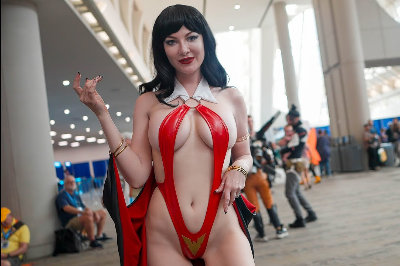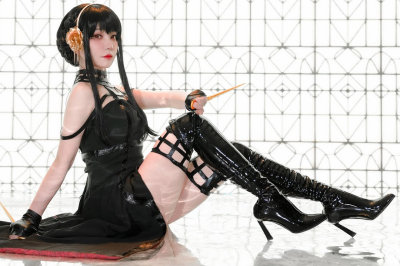Movie review by Chris Lord
Starring: Sam Worthington, Victoria Hill, Lacey Hulme, Gary Sweet, Steve Bastoni
Director: Geoffrey Wright
Shakespeare has always been popular with filmmakers, for obvious reasons – exciting and tight plots, great and tragic characters, the breadth of human experience (murder, laughter, death, love, often all in the same 5 minutes), and, above all for some, his power of words. So “doing a Shakespeare” is always easy to sell, and this is how this film’s director, Geoffrey Wright, managed to get the money so easily for his Macbeth, despite having no big actors signed up. Inexperienced actors may make for a nice local feel, and save some cash, but, when they haven’t done much Shakespeare before, you risk losing the force of the words, and Wright’s actors certainly don’t do justice to the language of the original.
If you’re ‘doing a Shakespeare’ you have to decide when and how to set it. There’s an amusing article at The Onion’s website about a wacky new interpretation of The Merchant of Venice set not in the “usual” “1960s Las Vegas, a high-powered Manhattan stock brokerage, or an 18th-century Georgia slave plantation”, but, crazily, in 16th century Venice… If contemporary settings of Shakespeare are the norm, then Wright blazes no trails by setting his Macbeth in contemporary Melbourne gangland – King Duncan is the leader of the gang, Macbeth, Banquo and Cawdor trusted henchmen, the last of whose treachery sets up the amazing opening sequence, where, after the witches prophesy Macbeth’s getting “Cawdor”, Duncan’s gang get caught in a trap at a drug deal, and Macbeth saves the day by taking the action back to a nightclub called “Cawdor” (geddit?) and catching the treacherous Cawdor for later execution. Duncan gives the club to Macbeth, thereby fulfilling the witches’ first prophecy. (This first scene has scarcely a word spoken, so the actors can get used to the film before they start having to speak Shakespeare’s text.) That’s the basic pattern of the film, translating the plot into gangland terms: guns for swords, nightclubs and luxury mansions for castles, depraved schoolgirls for witches, and, the best yet, “Birnam Timber” blazoned on the side of the logging lorry used to bring Macbeth’s enemies to Dunsinane (in the original Macbeth is told he is safe until Birnam Wood shall come to Dunsinane, which prophecy is fulfilled by his enemies’ taking boughs of trees to disguise their approach).
There are some clever and subtle adaptations for the cinema, especially involving the treatment of the soliloquies, those moments where a solo actor reveals his thoughts to the audience. A usual device (used in Roman Polanski’s 1971 version of MACBETH) is the voice-over, and Wright often uses this; sometimes, though, he normalises the strangeness of soliloquy by making it into a dialogue, for example Lady Macbeth’s “milk of human kindness” speech (Act I Scene 5) is spoken not to the air but to her husband. Less effective a change is when Macbeth’s famous reaction to his wife’s suicide (Act 5 Scene 5):
To-morrow, and to-morrow, and to-morrow,
Creeps in this petty pace from day to day
To the last syllable of recorded time,
And all our yesterdays have lighted fools
The way to dusty death. Out, out, brief candle!
Life’s but a walking shadow, a poor player
That struts and frets his hour upon the stage
And then is heard no more: it is a tale
Told by an idiot, full of sound and fury,
Signifying nothing.
is moved to the end of the whole film as an epitaph to the dead Macbeth himself, apparently solely because the words “Out, out brief candle!” seem to fit. The problem here is that his very last words (“a tale… signifying nothing”) end up as a wrong, misplaced, comment on the whole film.
Atmospherically MACBETH is a success. It is shot in the increasingly common graphic-novel appearance: dark lighting, broad colours often used to reinforce imagery (e.g. bright reds), stylised violence – think V FOR VENDETTA or 300. The imagery framework is a mixture of gothic (shots of the moon behind clouds, teenage witches vandalising angels in a graveyard) and urban violence (music, bling, neon, cars, guns). This works very well, making the whole experience more fictional, distancing us from the superficially more “real’ setting of 2000s Melbourne. John Clifford White’s soundtrack presses all the buttons, but in usually unchallenging ways. There is some impressive electronic music at times, however, and some skilful sleight of hand on occasion when the soundtrack becomes the music the characters are listening to, for example at parties (dancing to “You’re a Man of the Future”!), or on a TV turned off by Macbeth’s remote.
I said earlier that the cast are inexperienced, especially at Shakespeare – the lines are often delivered flatly and without the understanding obvious in a Branagh. This also makes it harder for us to follow, but this doesn’t matter too much as we follow the story easily enough. Sam Worthington is a suitably good looking and ‘hard’ looking hero (DiCaprio hair but tougher face) for this kind of gangster movie, but he doesn’t put much life into the character, merely responding to events and other people (but perhaps this is a subtle comment on Macbeth himself?). Things look up, however, in his last hours, when, as he loses his grip on reality, he dons Bono shades and a kilt, dances a jig, and looks very much the doomed man: “Whom the gods would destroy they first make mad”. More impressive, and quite chilling, is Victoria Hill’s Lady Macbeth. Hill also co-wrote the film (and cast herself while doing so); she adds a much more sinister feel to the part than the rather jolly Francesca Annis in Polanski’s movie. Lachy Hume’s Macduff is a more filled out character, whose response to the news of his family’s deaths is genuinely moving.
Overall MACBETH is a successful gangster-gothic film – the excitement of Tarantino and the darkness of Hammer. It’s not a particularly intelligent film, but does have some nice touches, and it’s not particularly well-acted, but the thrilling visual atmosphere and the timeless and familiar plot had me thoroughly gripped and involved.
![]()



